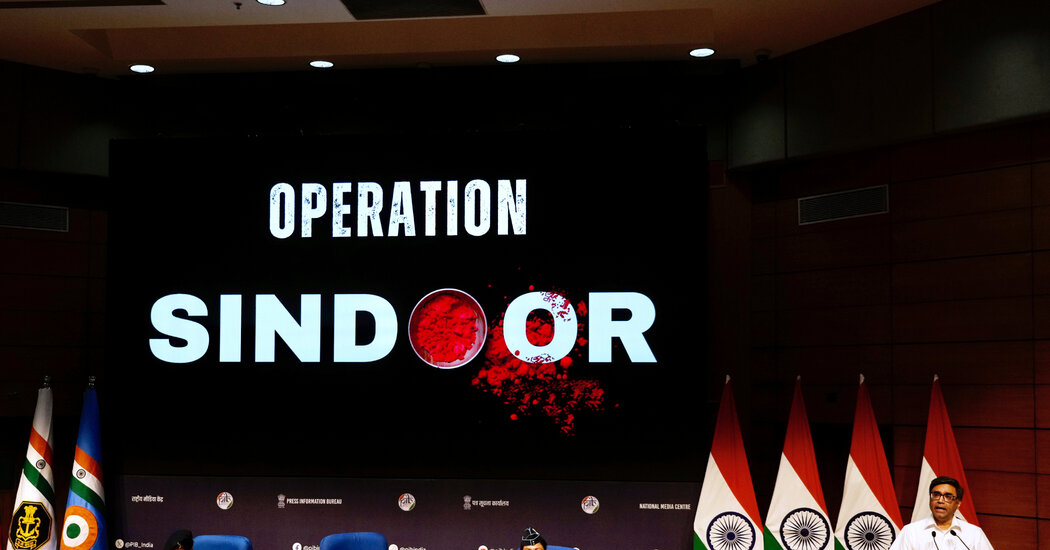Himanshi Narwal was first a symbol of tragedy, then a target of hate.
Last month, Ms. Narwal was captured in an image sitting beside her slain husband, who was among 26 people killed in a terrorist attack on the Indian side of Kashmir. As India struck Pakistan on Wednesday in retaliation, Ms. Narwal became shorthand for why India picked the name “Operation Sindoor” for its military action.
Sindoor, or vermilion powder, is a traditional marker of the marital status of Hindu women. Married women wear it either in the parting of their hair or on their foreheads, and they wipe it off if they become widowed. During the April 22 terrorist attack, many women lost their husbands, who were targeted because they were Hindu. But few received the media attention that Ms. Narwal has after the image of her by her husband’s side went viral.
The Indian government’s choice of the name Operation Sindoor signaled its intention to avenge the widowed women. On social media, the Indian Army announced the strikes with a stark image that included a jar of spilled sindoor, which resembled spattered blood.
“Operation Sindoor” also signals to right-wing Hindu groups — many of which favor more traditionally defined gender roles — that the Hindu nationalist government of Prime Minister Narendra Modi is listening to their demands for vengeance.

Carrying the body of Vinay Narwal, a naval officer who was killed in the attack last month.Credit…Bhawika Chhabra/Reuters
But some feminists have criticized the use of the word sindoor.
Hindu nationalism is predominantly driven by a male view of the world, said V. Geetha, a feminist historian who writes about gender, caste and class. “Women figure in it as objects to be protected or as mother figures goading their men to prove their heroism,” Ms. Geetha said.




